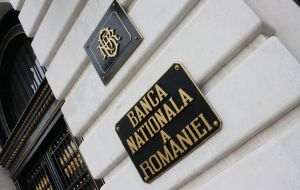European states living under the threat of the Russian Federation must invest massively in the production capacities of the national defense industry, says an analysis by the think-tank Mars (formerly the 2 March Foundation - 2-Mars) published in the French daily La Tribune, group which is made up of thirty French personalities from different backgrounds, from the public and private sectors and from the academic world, and which produces analyzes on issues of strategic interests related to the defense and security industry, technological development and industrial options.
The quoted source says: "Although redeploying the military and investing in defense may seem expensive at first glance, recent economic literature shows that they are, in fact, profitable in the long run. Economic studies suggest that the return on investment in defense ranges from 0.6 to 1.2 per year. From a macroeconomic point of view, the defense effort has no fixed optimal limit, expressed as a percentage of GDP. It all depends on the threats a nation faces and its size. NATO recommends a target of 2% of GDP for defense spending, but during the Cold War this figure was at least 3%. (...) A fundamental aspect of defense investments is their role in ensuring national sovereignty. Industrial armaments policy is not only aimed at short-term economic advantages, but also at medium and long-term ones. By supporting national production, states can control the trade balance and maintain a high degree of strategic autonomy. Imports of military equipment, although necessary in some cases, have a negative impact on the trade balance and sovereignty. Investments in the defense industry not only provide economic stability and jobs, but also stimulate technological innovation. The armaments industry is an engine of research and development, and investments in this field generate innovations that also have applications in the civilian sector."
The cited analysis states: "Investment in defense actually includes several components: the formation of fixed capital in the form of industrial capabilities, the formation of human capital necessary for the design and maintenance of equipment and technological research. On the other hand, considering the combat equipment itself as an investment is economically questionable, since it is difficult to depreciate and insure to the extent that its useful life is impossible to determine in advance. Consequently, the economic impact of defense investments is all the stronger as it affects the three components mentioned above; if it only refers to the production of already developed equipment (and even more consumables such as ammunition), the impact is zero, or even negative".
French experts also argue that the purchase of military equipment from national producers makes it possible to control the trade balance, provided that the value chain remains predominantly national from start to finish. If the value chain is not one like the one above, any "leakage" outside the national economic circuit reduces the potential multiplier effect and weakens the objective of remaining sovereign in the long term.























































